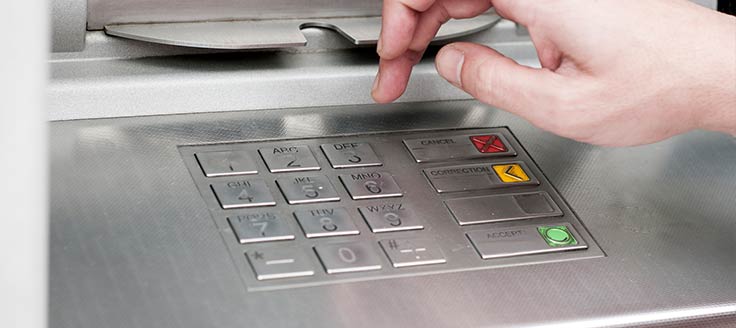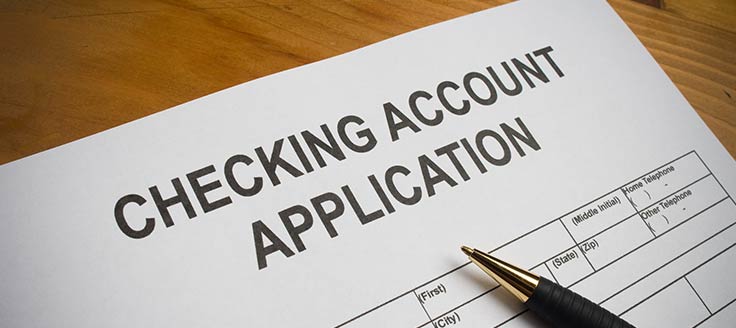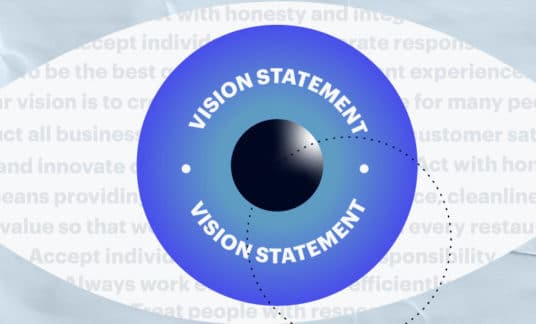Small business owners need a business bank accounts. Period.
Why? Opening one makes it far easier to keep your business and personal finances separate.
We’ll walk you through the process.
Pick the Best Type of Business Bank Account
If you’ve done any research on this topic, you’ll know there are loads of free online checking accounts out there. These should be suitable for your small business requirements, providing you don’t need to make cash deposits.
If a free online checking account doesn’t meet your business needs, consider opening an account through a conventional bank. While these kinds of accounts may come with fees, banks usually provide a greater assortment of financial products and services.
As a new business owner, it’s worth considering a business savings account, too. Why not earn interest on the money you’ve set aside for later use?
Let’s explore these three types of bank accounts in a little more detail.
Free Business Bank Accounts
Free business bank accounts don’t charge monthly maintenance fees. If there are costs involved, you may avoid paying them by meeting certain requirements. Most commonly, this means satisfying a minimum account balance.
Typical features of free bank accounts include:
- Electronic deposits
- Withdrawals
- Electronic transfers
- The option of writing checks
Free online checking accounts are generally best for new companies that don’t need to make cash deposits. Consider Azlo, a digital banking platform. In addition to not charging monthly payments, Azlo doesn’t impose overdraft fees or card replacement costs. Indeed, you can send payments and accept deposits from suppliers, partners and clients, all free of charge.
What About a Business Checking Account?
You might be wondering, what’s the difference between a free business checking account and a regular business checking account? Fees.
A business checking account is somewhat similar to a personal bank account, in that you usually can:
- Write checks
- Transfer and receive money electronically
- Withdraw and deposit funds via a debit card
The critical difference between a business checking account and a personal one? You can separate your personal and business finances. Trust us, come tax season you’ll be thankful you opened a separate account.
Decent business checking accounts usually offer introductory offers, have flexible network availability and provide affordable fees. Take Bank of America, for example. Not only does this bank offer cheap monthly account fees, but it also has one of the more extensive networks of physical branches and automatic teller machines (ATMs) in the U.S.
Business Savings Accounts
Business savings accounts are a little more complicated, namely because there are a few types to choose from. Generally, there are three kinds of savings accounts to consider:
- The high-yield savings account: These accounts boast lower fees and are great for entrepreneurs looking to build their savings through monthly interest. Some banks even offer interest rates as high as 2.25%.
- Business CD accounts: You usually earn more interest with a CD account than a traditional savings account. But you have to lock your money away for a set time, or you’ll be stung with early withdrawal fees.
- Money market accounts: These also generally pay higher interest than typical savings accounts. But, as they’re considered low-risk investments, you’ll earn lower interest than other investments.
Choose the Right Bank
Before you sign the dotted line and open a bank account, consider the following factors:
- Your company’s budget: Weigh this against the costs charged by the bank. Review any servicing, deposits and ATM fees.
- The number of branches available and, more importantly, their locations.
- The online banking experience. For example, can you make mobile deposits and pay bills online?
- The bank’s customer service standards. Read online reviews to see how people rate their customer support. You could also go on their website to see if the bank’s won any awards for their customer service.
- Whether you’ve used the bank before.
- Whether your bookkeeping software will connect with the bank account.
- Does the bank offer products and services you might need at a later date? For instance, does it provide small business loans, lines of credit, company credit cards, etc.?
Measure these factors against the short and long-term needs of your business. After all, you don’t want to make a costly mistake.

Check Business Bank Account Costs
While free bank accounts don’t charge monthly fees, pretty much all banks charge transaction fees. That said, banks tend to waive these costs if you meet specific criteria.
Here are the most common fees:
Business Checking Account Fees
Usual costs associated with a business bank account, include:
- A monthly service fee: On average, these cost between $10 and $17 a month. These often are waived if you meet your bank’s specific criteria.
- A minimum balance fee: This typically ranges between $15 and $25 a month.
- Transaction fees: These usually range between 40 cents and 50 cents per transaction. Typically, if you have 200 monthly transactions or less, your bank won’t charge you. Be sure to check this with your bank.
- Cash deposit fees: Generally priced between 2% and 3% per deposit. These costs usually come into play if an account exceeds $7,500 worth of cash deposits a month.
- ATM fees: This can be anywhere between $2 to $3 per transaction and usually only applies if you use an out-of-network ATM
- Wire transfer fees: These typically cost between $15 and $45 per transaction
Don’t assume that a free account means everything is free. Read the fine print.
Business Savings Account Fees
Typical fees linked with business savings accounts are as follows:
- Monthly service fees: These are usually priced anywhere between $2 to $20 a month. Just like a checking account, these are often waived.
- A minimum balance fee: These are generally priced the same as business checking accounts.
- Monthly balance transfer fees: These typically cost between $5 and $20 per transaction. You’ll usually have to pay this charge if you exceed six balance transfers a month.
- Cash deposit fee: Again, this is mostly the same as a checking account.
- Wire transfer fee: These usually vary between $10 and $45 per transaction
Business Certificate of Deposit Fees
There are a couple of account fees linked to certificate of deposit (CD) accounts:
- Early withdrawal fees: You’ll have to pay a charge if you want to release money from the account before the agreed-upon date. The base of this calculation is the percentage of interest earned. Or, the amount you wish to withdraw.
- Broker fees: This is your broker’s commission and based on the amount you’ve deposited in your CD.
Gather the Necessary Documents
To open any new business account, you’ll need to provide the proper documentation to verify the name and nature of your company — and prove you’re registered with the IRS. It also confirms you’re legally permitted to set up the account.
The documents you need will vary depending on your corporate structure. Visit the bank’s website to see what information you should gather before starting the process.











